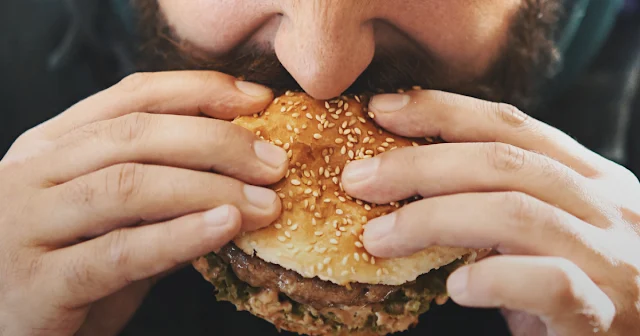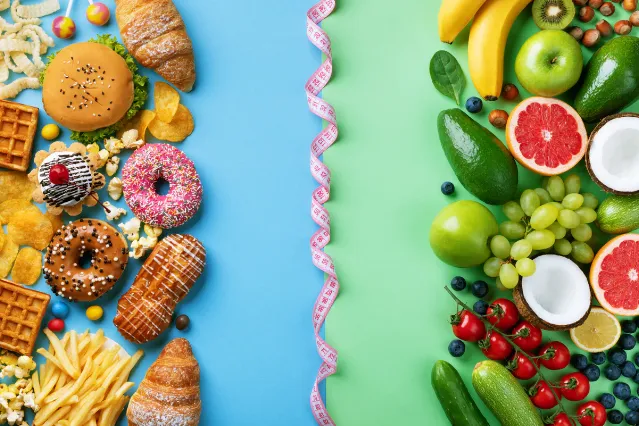When it comes to maintaining a healthy diet, it's important to be aware of the foods that you should avoid. While there's no single food that's inherently "bad," there are some foods that are more likely to lead to weight gain, inflammation, and other health issues. In this article, we'll explore some of the top unhealthy foods to avoid, ranked by their impact on your health.
"Free Keto Cook Book! Lose Weight, Plenty of Carb Free Recipes & more!"
Sugary Drinks
- Sugary drinks like soda, sports drinks, and sweetened teas are some of the unhealthiest foods you can consume. These drinks are loaded with sugar, which can lead to weight gain, insulin resistance, and other health issues. In fact, drinking just one can of soda per day can increase your risk of developing type 2 diabetes by 18%.
Processed Meats
- Processed meats like bacon, sausage, and deli meats are high in sodium, nitrates, and other additives that can increase your risk of heart disease, cancer, and other health issues. These meats are also often high in saturated fat, which can contribute to high cholesterol levels.
Fried Foods
- Fried foods like french fries, chicken nuggets, and onion rings are high in calories, unhealthy fats, and sodium. Eating too many fried foods can increase your risk of heart disease, type 2 diabetes, and other health issues.
"Free Keto Cook Book! Lose Weight, Plenty of Carb Free Recipes & more!"
Ice Cream and Other Sweets
- While it's okay to indulge in sweets occasionally, consuming too much ice cream, cake, and other desserts can lead to weight gain and other health issues. These foods are often high in sugar, unhealthy fats, and calories, which can contribute to obesity, insulin resistance, and other health issues.
White Bread and Pasta
- White bread and pasta are refined carbohydrates that are stripped of their nutrients during processing. These foods can cause your blood sugar to spike, leading to a crash that leaves you feeling hungry and craving more carbs. Additionally, consuming too many refined carbohydrates can contribute to weight gain and other health issues.
Fast Food
- Fast food is often high in calories, unhealthy fats, and sodium. Eating too much fast food can lead to weight gain, high cholesterol levels, and other health issues. Additionally, many fast food chains use additives and preservatives in their food, which can contribute to inflammation and other health issues.
Chips and Snack Foods
- Chips and snack foods like crackers and pretzels are often high in calories, unhealthy fats, and sodium. Eating too many of these foods can contribute to weight gain, high blood pressure, and other health issues. Additionally, many snack foods are highly processed and contain additives and preservatives that can be harmful to your health.
"Free Keto Cook Book! Lose Weight, Plenty of Carb Free Recipes & more!"
Canned Soup
- Canned soup is often high in sodium and can contribute to high blood pressure and other health issues. Additionally, many canned soups are highly processed and contain additives and preservatives that can be harmful to your health.
Margarine and Vegetable Shortening
- Margarine and vegetable shortening are often high in trans fats, which have been linked to an increased risk of heart disease and other health issues. These fats are often used in processed foods and baked goods, so it's important to read labels carefully and avoid foods that contain them.
Energy Drinks
- Energy drinks like Red Bull and Monster are often high in caffeine and sugar. Consuming too many of these drinks can lead to insomnia, anxiety, and other health issues. Additionally, many energy drinks contain additives and preservatives that can be harmful to your health.
Here are some tips for avoiding unhealthy foods when eating out:
Eating out can be challenging when you're trying to maintain a healthy diet, as many restaurant dishes are loaded with unhealthy fats, sugars, and sodium. However, with a little bit of planning and mindfulness, it's possible to make healthier choices when dining out.
Research the restaurant in advance: Before you go out to eat, take a look at the restaurant's menu online. Look for healthier options that are lower in calories, sodium, and unhealthy fats. This will help you make a more informed choice when you're at the restaurant.
Ask for modifications: Don't be afraid to ask for modifications to your dish, such as having the sauce on the side or substituting vegetables for fries. Most restaurants are willing to accommodate dietary preferences and restrictions, so don't be afraid to ask.
Choose grilled or baked options: When possible, choose grilled or baked options instead of fried foods. Grilled or baked meats are often lower in calories and unhealthy fats, and can be just as flavorful as their fried counterparts.
Avoid buffets: Buffets can be tempting, but they're often loaded with unhealthy options. If you do end up at a buffet, focus on filling your plate with vegetables, lean proteins, and whole grains.
Watch portion sizes: Restaurant portion sizes are often much larger than what you would eat at home. Consider splitting a dish with a friend or taking half of your meal home for later.
Skip the bread basket: Bread and other pre-meal snacks can add unnecessary calories and carbohydrates to your meal. Consider skipping the bread basket altogether or having just one slice.
Choose water or unsweetened drinks: Sugary drinks like soda and sweet tea can add hundreds of calories to your meal. Stick with water or unsweetened drinks to save on calories and sugar.
By following these tips, you can make healthier choices when eating out and stick to your healthy eating goals. Remember, it's all about balance and mindfulness. Don't be afraid to indulge in your favorite foods on occasion, but make sure to focus on whole, nutrient-dense foods as much as possible.
In conclusion, there are many unhealthy foods that you should avoid if you're trying to maintain a healthy diet. Sugary drinks, processed meats, fried foods, ice cream, white bread and pasta, fast food, chips and snack foods, canned soup, margarine and vegetable shortening, and energy drinks are all foods that can contribute to weight gain, inflammation, and other health issues. By avoiding these foods and focusing on whole, nutrient-dense foods, you can improve your health and achieve your weight loss goals.



